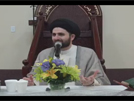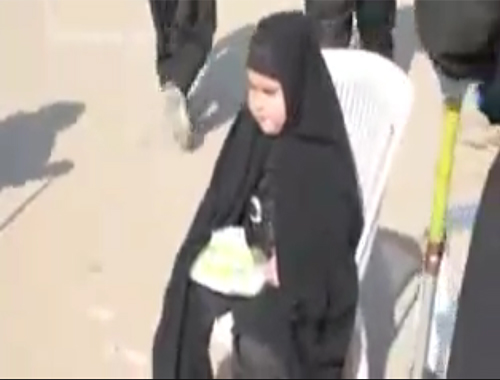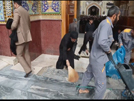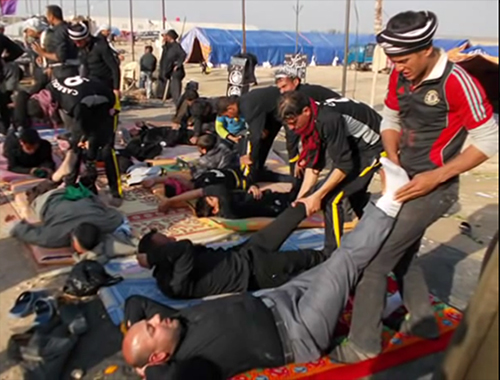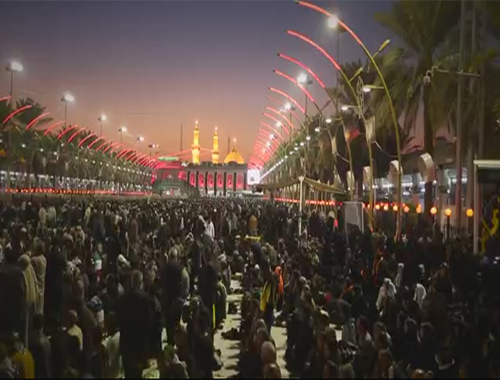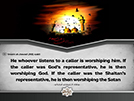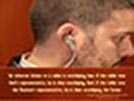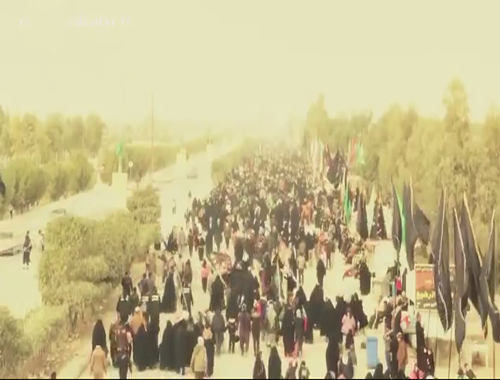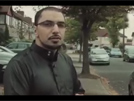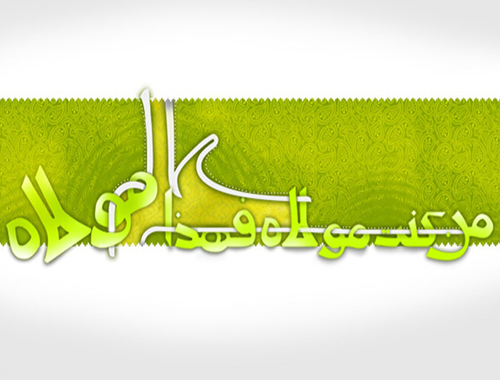
“So relate the stories that perhaps they will give thought.” (7:16)
History is filled with stories about miracles and happenings that we today consider ‘supernatural’. Each miracle serves a purpose and is suited to the circumstances it is in. Learning about these ‘miracles’ helps strengthen the attachment to our beliefs and principles.
In this article, we discuss one phenomenon that today we agree is ‘impossible’, but history has served us with numerous examples of it happening. That phenomenon is babies speaking a comprehensible language.
Prophet Jesus (A.S)
By far, the most prominent case and the one that is directly mentioned in the Qur’an is Prophet Jesus (A.S) speaking after his birth. This was a miracle that Prophet Jesus was armed with in order to spread the message of God.
When the people came to Lady Maryam (S.A) and accused her of being unchaste, she remained silent and pointed to the baby. At that point, God gave the power of speech to Prophet Isa, who spoke and introduced himself to everyone and mentioned some of his qualities. In essence, this speech from the baby was proof for every one of the status of Prophet Isa and his mother. Also, it was a direct answer to the accusations that the people made towards Lady Maryam. This story is recounted in the 19th chapter of the Holy Qur’an.
The Witness of Prophet Joseph (A.S)
In the story of Prophet Joseph(A.S), Zulikha accused the prophet of trying to seduce her when in fact she was the one who did so. When the king was questioning both, Prophet Yusuf told him what happened. It was at that point that Allah inspired Prophet Yusuf to point to a baby which was still in a cradle. Prophet Yusuf then told the king to question the baby. Allah gave the power of speech to that baby, who said, “If his shirt is torn from the front, then she has told the truth, and he is of the liars. But if his shirt is torn from the back, then she has lied, and he is of the truthful.” (12:26-27) It was that baby who became a witness through the will of Allah and was the one who saved the Prophet of Allah from being wrongfully accused by Zulikha. (Bihar Al-Anwar)
Son of the Hairdresser of Pharaoh’s Daughter
The hairdresser of Pharaoh’s daughter secretly believed in Allah and Prophet Moses. One day, while she was combing the hair of the daughter, the comb fell. As she picked it up, she said “In the name of Allah”. The daughter surprisingly asked, “[Do you mean] my father?” The hairdresser replied, “No, but my Lord, and the Lord of you and your father.” The daughter told the Pharaoh about the hairdresser’s secret faith, so Pharaoh punished her by throwing her children one by one alive into a blazing fire. The hairdresser was patient as she saw her kids martyred before her very eyes. But her last child was a newborn, a baby! She was devastated. It was at the point that Allah gave the hairdresser that last surge of patience and hope through her baby son. Allah let the baby speak, and he told his mother, “Have patience, mother, because you are on the right path.” Upon hearing these words, she stood there armed with more patience than ever, and she was martyred right after her son. (Bihar Al-Anwar)
The Baby from the Companions of the Trench
This story is similar to that of the hairdresser of Pharaoh. The companions of the trench were those who followed a prophet sent by Allah, but the disbelievers fought him and hurt him until he was martyred. Then they dug trenches and filled them with fire, warning everyone to either abandon the prophet and his path or be thrown in the ignited trenches. Many people feared for their lives and abandoned the right path. Only a few held on to what they believed in, and they were consequently martyred. These are the companions of the trench mentioned in the Qur’an in chapter 85, verse 4.
One lady from these true followers was willing to throw herself into the fire, but then she saw her newborn, who was only two months old. She pitied him and was close to abandoning martyrdom. Just like in the story of the hairdresser of Pharaoh, Allah let the baby talk. The baby told his mother, “O mother, throw yourself and me in the fire. This is little in [the way] of Allah.” (Bihar Al-Anwar)
A Final Look
Indeed, history is filled with fascinating stories. And what we consider today as ‘impossible’ has repeatedly occurred throughout history. Given these multiple examples of babies speaking, it is rather ironic that people have a hard time believing that our Infallibles (peace be upon them) testified to God’s Oneness as soon as they were born.
Yes, when Imam Mahdi (A.S) was born, his father Imam Askari (A.S) held him and told him to speak, and Imam Mahdi (A.S) recited the testimony of faith. And according to narrations, on the seventh day, Imam Mahdi (A.S) recited the following verse: “And we wish to confer favor upon those who were oppressed in the land and make them leaders and make them inheritors.” (28:5) (Kamal Al Deen Wa Tamam Al Ne’ma)
And similar stories regarding the Prophet, Imam Ali, and the rest of Ahlul Bayt (A.S) exist, and if Allah made other babies in history speak, is it really difficult for Him to make the best of all people speak when they were babies?
No, and “indeed, Allah is over all things competent.”
Taken From: Islamic Insight
 Holy Quran - Islam Guidance
Holy Quran - Islam Guidance